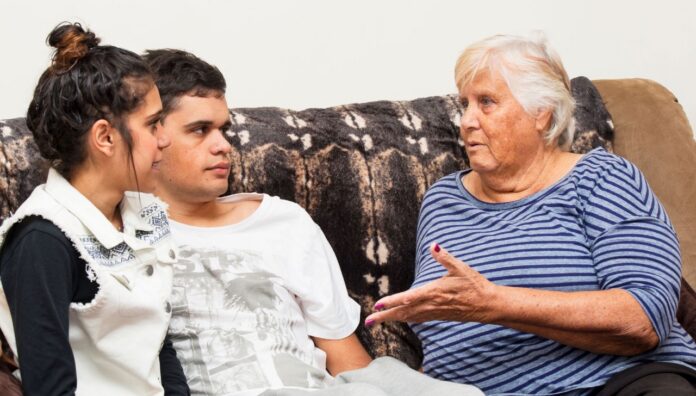This National Reconciliation Week (27 May–3 June), PSA Senior Pharmacist Megan Tremlett encourages pharmacists to change their perspective on Aboriginal and Torres Strait Islander communities to improve end-of-life care.
Only 1.4% of people accessing palliative care services identify as Aboriginal and Torres Strait Islander, with lack of cultural safety in the healthcare system identified as one of the key barriers.

‘Aboriginal and Torres Strait Islander people continue to experience racism and cultural stereotyping in the healthcare system,’ Ms Tremlett told Australian Pharmacist.
Given the cultural sensitivities around death and dying for many Aboriginal and Torres Strait Islander peoples, it’s important that cultural beliefs and practices are acknowledged and accommodated during the palliative and end-of-life care journey.
‘There are many different cultural practices and varying terminology used by Aboriginal and Torres Strait Islander peoples, [and] if members of the frontline health system are unaware of these at the local level, they can’t accommodate [them],’ Ms Tremlett said.
Ms Tremlett facilitated the development of an interactive webinar to help change this, in collaboration with the Gwandalan National Palliative Care Project and supported by funding from COORDINARE, South Eastern NSW Primary Health Network (PHN).
Delivered on 31 May, the webinar was designed for pharmacists and pharmacy staff in five key regions to support culturally safe care for Aboriginal and Torres Strait Islander patients nearing end-of-life.
Ms Tremlett hopes the project will help participating pharmacists and pharmacy staff reflect and act on the theme for this year’s National Reconciliation Week: ‘Be Brave. Make Change’.
‘It takes courage to bring about change,’ Ms Tremlett said. ‘So it’s about challenging each and every one of us to [look at] our unconscious biases and to commit to learning about other cultures.’
Origins of the project
‘It takes courage to bring about change. It’s about challenging each and every one of us to look at our unconscious biases and to commit to learning.’
Megan Tremlett MPS
The PSA has worked with COORDINARE on pharmacy-based palliative care initiatives in South Eastern NSW for the past 2 years, with a focus on building pharmacists’ understanding of palliative care concepts, encouraging participation in interdisciplinary palliative care teams, facilitating access to core injectable palliative care medicines and providing bereavement support.
After attending a workshop late last year in Brisbane with the Gwandalan National Palliative Care Project, which supports relationships between frontline healthcare service providers and Aboriginal and Torres Strait Islander communities, Ms Tremlett conceived the idea for the webinar.
‘That prompted me to think about how pharmacy could be supported to better meet the needs of local Aboriginal and Torres Strait Islander community [members] living with a life-limiting illness,’ she said.
Both Ms Tremlett and COORDINARE recognised the need to co-design the webinar with Aboriginal and Torres Strait Islander community members from across the South Eastern NSW region to ensure the content reflected what the community wanted pharmacists to know.
‘It’s important to remember that cultural safety is determined by the person receiving the care, not the person providing the care,’ she added.
Key elements of the webinar included overarching cultural values of Aboriginal and Torres Strait Islander communities, culturally safe communication techniques, including death and dying terminology, and engagement strategies for participants to connect with local Aboriginal and Torres Strait Islander communities.
‘We [also] invited an Aboriginal member of the community from the Queanbeyan/Goulburn/Yass region to add local context by providing his own reflections and stories throughout the webinar,’ Ms Tremlett said.
Top tips for improving cultural safety
There are several actions pharmacy staff can undertake to help Aboriginal and Torres Strait Islander peoples feel seen in the care they receive, with their cultural strengths and differences welcomed and respected.
In relation to palliative care, it is important to acknowledge that spirituality plays an important role in Aboriginal and Torres Strait Islander culture, with life and death viewed by many as a continuous cycle from birth to death to rebirth.
‘Cultural safety is determined by the person receiving the care, not the person providing the care.’
Megan Tremlett MPS
Staff members should make an ongoing commitment to engage with Aboriginal and Torres Strait Islander members of the community to learn about shared histories, cultures and achievements.
‘That [could include] undertaking local cultural induction or cultural immersion programs, and participating in cultural events such as NAIDOC Week celebrations,’ Ms Tremlett said.
‘[Pharmacies] could also display artwork that represents local culture, have uniforms with elements of local cultural design built into them, or an Acknowledgement of Country statement that is visible.’
Aboriginal and Torres Strait Islander peoples are also underrepresented in the pharmacy profession, comprising about 0.3% of the pharmacist workforce nationally.
‘It is important to build the representation of Aboriginal and Torres Strait Islander people in the pharmacy workforce, and for pharmacists to actively look for opportunities to do that,’ Ms Tremlett said.
Under the 7th Community Pharmacy Agreement, there are two schemes to support Aboriginal and Torres Strait Islander people to work in pharmacy: a pharmacy assistant traineeship scheme and a scholarship to study pharmacy at university.
Pharmacists could also consider speaking at local schools, talking at careers events, or offering work experience opportunities to local Aboriginal and Torres Strait Islander people.



 Dr Peter Tenni[/caption]
Dr Peter Tenni[/caption]
 How should we deprescribe gabapentinoids, according to the Maudsley Deprescribing Guidelines[/caption]
How should we deprescribe gabapentinoids, according to the Maudsley Deprescribing Guidelines[/caption]



 Pharmacists have always prescribed, but they have the potential to prescribe much more
Pharmacists have always prescribed, but they have the potential to prescribe much more





